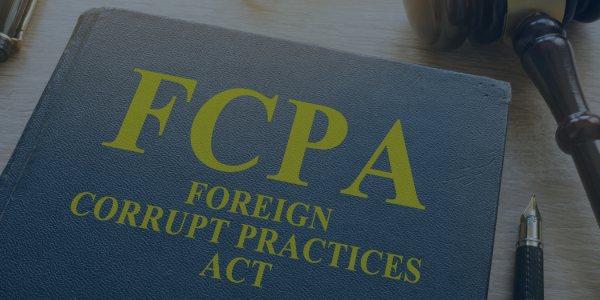The interconnected and globalised business landscape of India has paved the way for Indian companies to expand their operations beyond national borders, seeking growth opportunities and forging partnerships on an international scale. However, with increased global engagement comes the need to navigate complex legal frameworks and comply with anti-corruption regulations imposed by different countries.
“India ranks 85th, among 180 countries, with a score of 40 (on a scale of 0 to 100 with 0 being highly corrupt and 100 being very clean).”
Transparency International
Anti-corruption compliance is a hot-button issue in countries such as India, where transnational corporations are increasing their presence. Two key legislations that have a significant impact on Indian businesses operating overseas are the Foreign Corrupt Practices Act, 1977 (FCPA) of the United States and the Bribery Act, 2010 (UKBA) of the United Kingdom.
Understanding the Extraterritorial Reach of the FCPA and UKBA
The FCPA enacted in 1977, prohibits bribery of foreign government officials for the purpose of obtaining or retaining business. It applies to companies with a connection to the United States, including those listed on US stock exchanges or conducting business in the country. The UKBA, implemented in 2010, is even broader in its reach, covering bribery in both the public and private sectors. It encompasses companies registered in the UK, as well as foreign companies conducting business in the UK.
The impact of the FCPA and the UKBA on Indian businesses is multifaceted. Compliance with these laws is essential to avoid legal repercussions and safeguard corporate reputation.
Non-compliance can lead to severe penalties, including substantial fines, imprisonment, and damage to brand value. Moreover, violations under these legislations can have far-reaching consequences, as they may trigger investigations by US and/or UK authorities, resulting in a loss of business opportunities, strained relationships with international partners, and potential exclusion from global markets.
While both the FCPA and the UKBA have extraterritorial reach, the UKBA is considered to impose more stringent requirements on companies than the FCPA. The UKBA, unlike the FCPA, covers bribery of private individuals and companies as well as foreign public officials and does not permit an exception to facilitation payments from its definition of the offence of bribery. Further, under the FCPA, the failure of a company to keep accurate books and records is covered, while under the UKBA this is covered under a separate legislation.
Legal Complexities for Indian Companies and Need for Cross-border Co-operation
There are multifaceted challenges presented to the Indian corporations while dealing with international expansion. Business overseas will bring in cross-border issues of ensuring compliance. The FCPA and UKBA, both have stringent anti-bribery provisions which necessitate specific benchmarks. Indian companies need to establish robust internal compliance programs to ensure adherence to anti-corruption regulations. This includes
implementing policies and procedures, training employees, conducting regular audits, and monitoring business activities to identify and address potential violations
.Likewise, there are geographical and cultural differences and variations in business practices while operating in foreign markets. These differences can present challenges in navigating the requirements of the FCPA and UKBA, as ethical practices and acceptable gift-giving norms can differ significantly. What may be considered customary or acceptable in India could be perceived as bribery or unethical in these jurisdictions. This necessitates a cultural shift in the way Indian companies approach business relationships and transactions, requiring them to align their practices with the stringent compliance expectations of the FCPA and UKBA.
“Most companies club their gifting, hospitality and entertainment rules as part of the Code of Conduct for employees. Multinational companies operating in India are largely covered by the UK Bribery Act and US Foreign Corrupt Practices Act.”
-Swarnima for Business Standard
There is always an added complexity of juggling between jurisdictions which may evoke Due Diligence Complexity. The FCPA and UKBA demand thorough due diligence on business partners and third parties. Conducting comprehensive due diligence across various jurisdictions can be complex and time-consuming, particularly in regions with a higher risk of corruption. Indian companies operating in countries governed by the FCPA and UKBA face heightened scrutiny from regulatory authorities. This increased scrutiny can lead to more extensive investigations, audits, and potential delays in business operations, impacting the company's agility and speed of expansion.
Final Thoughts
The future of Indian companies in the context of the FCPA and UKBA is characterised by a growing awareness and commitment to compliance, strengthened governance practices, and an enhanced international reputation. Indian companies are expected to invest more resources in robust compliance measures, adapt to evolving regulatory landscapes, and actively engage in knowledge sharing and collaboration. By overcoming these challenges and embracing a culture of integrity, Indian companies can successfully navigate the complex landscape of anti-corruption regulations and unlock new avenues for global business growth.
Disclaimer: No information contained in this website may be reproduced, transmitted, or copied (other than for the purposes of fair dealing, as defined in the Copyright Act, 1957) without the express written permission of Rainmaker Online Training Solutions Pvt. Ltd.











